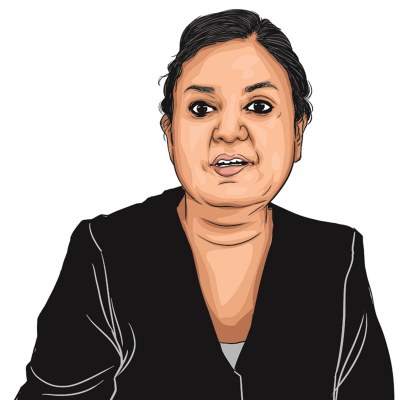Opinion Sridhar Vembu’s post linking vaccines with autism is irresponsible
In the West, vaccine hesitancy has led to a resurgence of measles, whooping cough. Anti-vaxxers should pause and reflect: Can we imagine our future generation without the Pulse Polio or measles-rubella vaccination campaign?
 Zoho co-founder Sridhar Vembu.
Zoho co-founder Sridhar Vembu. When Zoho co-founder Sridhar Vembu, who once set up rural school start-ups and back-ended software operations in villages, turns from hope-giver to an anachronism, it reminds you why tech billionaires should not arrogate the power of a nation’s spokesmanship to themselves. Or suffer from the Elon Musk syndrome of being a voiceover for the collective.
Vembu has sparked a controversy after sharing a post on an unverified study linking child vaccinations to autism, prompting outrage in the medical community. This is the kind of argument that has shaped the anti-vaccination agenda of the US Secretary of Health Robert F Kennedy Jr. Whatever his concern about the subject, whatever his curiosity and whatever his democratic right to dissent, as a person of science, his counter-narrative should have been backed by evidence at the very least. The report by the McCullough Foundation is self-published and not peer-reviewed and, therefore, negates the basic premise of credibility. But the bigger problem was him calling out to parents on social media to take the study seriously and claiming that vaccine use among children in India had resulted in a “rapid increase in autism.” Coming from an influencer, such a statement amplifies myths and buries science.
Extensive research worldwide has repeatedly shown there is no link between vaccines and autism. The one study of 1998 that claimed so has since been retracted and the author’s medical licence revoked for manipulating data and acting at the behest of a lobby that wanted to sue vaccine manufacturers. Even Kennedy’s claim that childhood vaccines contain thimerosal, which he believes is the trigger of autism, has been debunked as no research has found a causal link. Still, the US removed thimerosal from most childhood vaccines in the early 2000s after false propaganda stoked anxieties. Yet autism cases continued to spiral in the US.
One must understand that a vaccine, by virtue of its novelty in the human body, goes through multi-layered global scrutiny and is monitored by the minute. Before human trials, researchers work for several years in the laboratory and conduct animal studies to identify a promising vaccine candidate. Then it is tested in humans through three-phased trials across populations, re-evaluated by independent experts at the regulatory panel and is monitored even after it is out in the market. Given this thoroughness, any politicisation of vaccines can undermine the trust in our public health systems for good. Worse, it encourages a culture of anti-science and pushes us back to revisionist ways, particularly in a country like India, where people have a natural tendency to fall back upon alternative systems of medicine as a first line of treatment. Some of the touted benefits of these systems are still awaiting clinical validation.
India owes a lot to its vaccination drives. Can we imagine our future generation without the Pulse Polio campaign, the one that eradicated polio; the nationwide Covid-19 vaccination drive, one of the largest and fastest shielding exercises in the world or the Measles-Rubella (MR) vaccination campaign that prevented serious illnesses, birth defects and deaths? Given our population size, even a minuscule percentage of child mortality would mean huge numbers of young lives lost forever. The takeaways of such vaccination drives are beyond simple cures; they are also about building last-mile awareness in the community that no kind of public education programmes can convey.
Contrast this with vaccine hesitancy in the West where, disturbingly, we are seeing the return of measles cough and whooping cough because the herd immunity achieved by earlier diseases or vaccines is on the wane. There are reports of the re-emergence of meningitis and diphtheria too. Anti-vaxxers have further imposed an economic burden. A 2023 study found that vaccine refusal imposed a societal burden of £292 million on the UK over a 20-year period through increased healthcare costs and lost productivity.
Tech billionaires are feted for breaking the status quo and charting their independent but hugely successful journeys. And their giant corporations mean they own a lot of wealth and resources. It is this lone rider egoism that makes them question established premises, even if they have worked for the public good. The greatest example of this is Elon Musk, who thought his self-built status insulated him from criticism and gave him the right to have a say on every national policy. Besides, big tech majors own and operate critical digital infrastructure, which is the communication highway of the future. As its gatekeepers, they can influence opinion, control narratives and create a bedrock of algorithms that can dictate future agenda — on their terms. And even if it runs antithetical to the common good. It is because of this context that influencer voices should be measured and reasoned, not screaming or irreverent.
rinku.ghosh@expressindia.com






